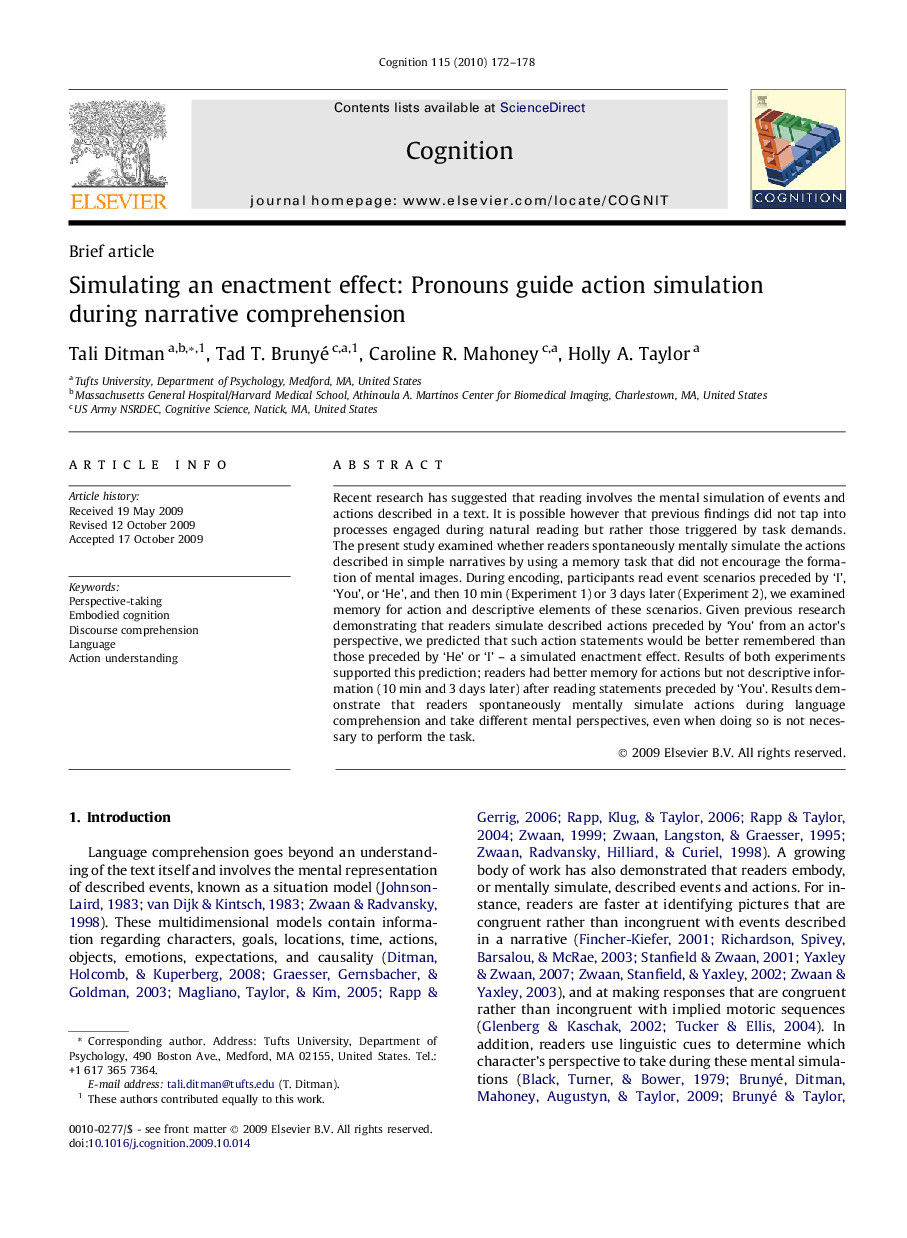| Article ID | Journal | Published Year | Pages | File Type |
|---|---|---|---|---|
| 926799 | Cognition | 2010 | 7 Pages |
Recent research has suggested that reading involves the mental simulation of events and actions described in a text. It is possible however that previous findings did not tap into processes engaged during natural reading but rather those triggered by task demands. The present study examined whether readers spontaneously mentally simulate the actions described in simple narratives by using a memory task that did not encourage the formation of mental images. During encoding, participants read event scenarios preceded by ‘I’, ‘You’, or ‘He’, and then 10 min (Experiment 1) or 3 days later (Experiment 2), we examined memory for action and descriptive elements of these scenarios. Given previous research demonstrating that readers simulate described actions preceded by ‘You’ from an actor’s perspective, we predicted that such action statements would be better remembered than those preceded by ‘He’ or ‘I’ – a simulated enactment effect. Results of both experiments supported this prediction; readers had better memory for actions but not descriptive information (10 min and 3 days later) after reading statements preceded by ‘You’. Results demonstrate that readers spontaneously mentally simulate actions during language comprehension and take different mental perspectives, even when doing so is not necessary to perform the task.
